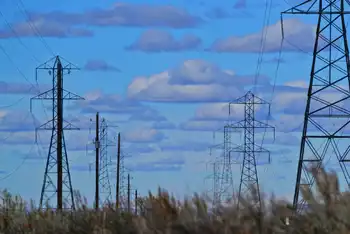Time to replace coal with natural gas
By Tampa Bay Times
NFPA 70e Training - Arc Flash
Our customized live online or in‑person group training can be delivered to your staff at your location.

- Live Online
- 6 hours Instructor-led
- Group Training Available
But the more I look into it, the more I think there is a fairly simple way to meet President Barack Obama's pledge of reducing carbon emissions in the United States by 17 percent over the next decade.
The silver bullet: decommission about two-thirds of the electric-generating capacity fueled by cheap and plentiful coal, and replace it with power generated from cheap and plentiful natural gas, which emits half as much carbon for each megawatt.
Until recently, this really wasn't a viable option. Not only was natural gas a lot more expensive than coal, but its price was also very volatile. Two recent developments have altered the economics of power generation and, with it, the politics of global warming.
Overbuilding in the late '90s sparked by deregulation of energy markets created a glut of gas-fired plants that on average are used only about 25 percent of the time.
At the same time, thanks to improved drilling, it is possible to extract gas from shale rock — so much that it has increased reserves by up to 40 percent.
What does this have to do with global warming? Last month, the Congressional Research Service released a study that found that if the utilization rate at existing gas plants were doubled, it could displace about a third of all coal-fired generation. That alone would get us more than a third of the way toward the 2020 target for reductions in carbon emissions.
Moreover, since it costs a lot less to build and operate a modern gas plant compared with a coal-fired plant, building additional gas plants could be more cost-effective than the industry's current plan to spend billions of dollars to modernize its aging coal plants to make them more efficient and environmentally friendly.
This gas-for-coal swap has been tossed around in energy policy circles for some time, but it got political traction this summer when it was embraced by environmentalists such as Robert Kennedy Jr., former Sen. Tim Wirth, D-Colo., and blogger Joe Romm of the Center for American Progress. The momentum increased in the fall when Exxon, BP and other big oil companies announced major investments in shale-gas exploration.
Political reality dictates that the winners from this shift — which include all of us — provide compensation for the losers. The price is hardly exorbitant. Since most of the coal plants that would be shut down are more than 40 years old and are fully depreciated, utility shareholders wouldn't be entitled to much relief.
As for workers, if the government were to offer an annual payment equal to current pay for two-thirds of the nation's 87,000 coal miners, along with a similar annuity to an equal number of laid-off railroad and utility workers, a back-of-the-envelope calculation suggests a first-year cost of $8 billion, declining every year after that. You could pay for this "cash-for-coal-clunkers" program with a temporary 2 percent surtax on electric bills, or about $2 a month for the average bill.
That's a small price to pay for dealing with global warming — and the cost would almost certainly be less than that. Because of a stunning bit of politically convenient geology, many states that have the most to lose from declining coal production — Pennsylvania, Ohio, Kentucky, West Virginia and Virginia — would also be among the big winners from shale-gas development. That doesn't mean that King Coal will go down without a fight, but this time he'll be up against not only the Sierra Club, but also the Petroleum Club of Houston.











